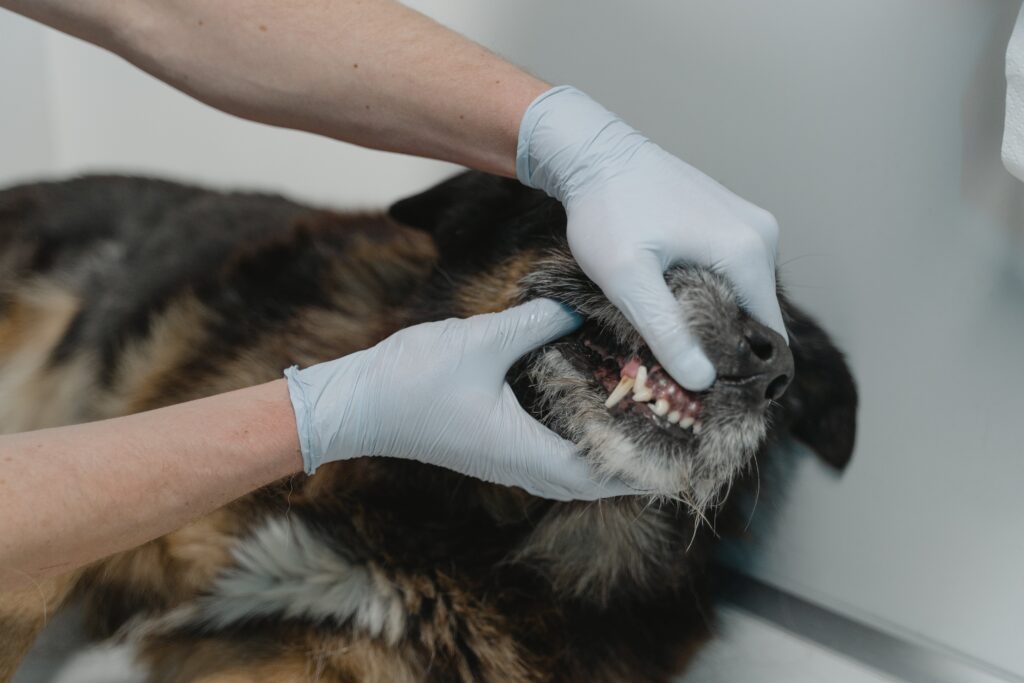Introduction to Pet Allergies
Pets, our cherished companions, often encounter health issues that impact their well-being, and one common concern among pet owners is pet allergies. These allergies, much like in humans, arise from the immune system’s response to specific substances termed allergens. Understanding these allergies is fundamental to ensuring the optimal health and comfort of our furry friends.
Significance of Pet Allergies
Allergens can stem from various sources in a pet’s environment, including their diet, elements in the air, and external factors like flea saliva. When exposed to these allergens, a pet’s immune system may react excessively, triggering allergic reactions.
Importance of Awareness
As responsible pet owners, recognizing the prevalence and impact of pet allergies is crucial. Allergic reactions in pets can manifest diversely, affecting their skin, respiratory system, or digestive tract. These reactions often lead to discomfort, irritation, and potential health complications for our beloved companions.
The Role of Responsible Pet Ownership
Understanding common pet allergies plays a pivotal role in responsible pet ownership. It allows us to recognize symptoms, seek timely veterinary care, and take proactive measures to minimize allergen exposure, ensuring a happier and healthier life for our pets.
Basics of Pet Allergies
Pet allergies encompass a spectrum of immune-mediated reactions triggered by specific substances known as allergens. These reactions result from the immune system’s hypersensitivity to otherwise harmless elements present in a pet’s environment, food, or external factors.
Understanding Allergens
Allergens in a pet’s environment can vary widely, ranging from pollen and dust mites to certain foods and flea saliva. When a pet encounters these allergens, their immune system perceives them as threats, prompting an exaggerated response.
Immune System Response in Pets
When exposed to allergens, a pet’s immune system produces antibodies, leading to the release of chemicals such as histamines. These chemicals cause the typical symptoms associated with allergic reactions, affecting various systems within the pet’s body.
Impact on Pet Health
Allergic reactions in pets can manifest diversely. These reactions may result in skin irritations, gastrointestinal disturbances, respiratory issues, or a combination of symptoms, significantly impacting the pet’s comfort and well-being.
Importance of Recognizing Allergic Reactions
Recognizing the symptoms of pet allergies is pivotal for pet owners. Symptoms may include persistent itching, skin redness, sneezing, coughing, watery eyes, or digestive problems. Identifying these signs enables proactive measures and timely veterinary intervention to alleviate discomfort and manage allergic reactions effectively.
Understanding the basics of pet allergies empowers pet owners to recognize potential allergic reactions in their pets and take necessary steps to address these concerns. Stay tuned for subsequent sections where we’ll explore different types of pet allergies, their symptoms, diagnosis, and management strategies.
Types and Symptoms of Common Pet Allergies
Pet allergies encompass various types, each characterized by specific triggers and symptoms. Understanding these types and their associated symptoms is essential for pet owners to identify potential allergic reactions in their pets.
Types of Common Pet Allergies
1.Food Allergies:
- Triggers: Reactions to specific ingredients in a pet’s diet, such as proteins (e.g., beef, chicken) or grains (e.g., wheat, soy).
- Symptoms: Itching, gastrointestinal disturbances, ear infections, or skin irritations.
2.Environmental Allergies:
- Triggers: Exposure to environmental allergens like pollen, dust mites, mold, or certain fabrics.
- Symptoms: Sneezing, coughing, itching, watery eyes, or skin irritation upon exposure.
3.Flea Allergies:
- Triggers: Sensitivity to proteins in flea saliva.
- Symptoms: Severe itching, skin inflammation, hair loss in affected areas.
Identifying Pet Allergy Symptoms
- Skin-Related Symptoms: Persistent itching, redness, inflammation, hot spots, rashes, or skin lesions.
- Respiratory Symptoms: Sneezing, coughing, wheezing, or nasal discharge in pets exposed to allergens.
- Eye and Ear Issues: Watery eyes, redness, irritation, or ear infections due to allergic reactions.
- Gastrointestinal Disturbances: Vomiting, diarrhea, or excessive licking of the paws in pets with food allergies.
Understanding the various types of pet allergies and their associated symptoms enables pet owners to recognize potential allergic reactions in their pets. Recognizing these symptoms prompts proactive measures and timely veterinary consultation for accurate diagnosis and management.
Diagnosis and Treatment of Pet Allergies

Accurate diagnosis and tailored treatment plans are crucial for managing pet allergies effectively. Veterinary professionals employ various methods to diagnose specific allergens affecting pets and implement appropriate treatment strategies.
Diagnosing Pet Allergies
1.Diagnostic Methods:
- Blood Tests: Assessing antibodies to identify specific allergens.
- Skin Tests: Introduction of potential allergens to observe reactions.
- Elimination Diets: Identifying food-related allergies by eliminating potential triggers.
2.Professional Veterinary Guidance:
- Seeking guidance from veterinarians for comprehensive evaluations and diagnostic tests.
- Veterinarians determine suitable diagnostic methods based on observed symptoms and medical history.
Treatment Approaches
1.Dietary Modifications:
- Specialized hypoallergenic diets to exclude common allergens from a pet’s diet.
2.Environmental Controls:
- Limiting exposure to environmental allergens through regular cleaning, hypoallergenic bedding, and minimizing contact with triggers.
3.Medications and Therapies:
- Prescribed medications like antihistamines, steroids, or immunotherapy to alleviate symptoms.
4.Veterinary Consultation:
- Importance of seeking professional veterinary advice for accurate diagnosis and tailored treatment plans.
Accurate diagnosis through veterinary consultation allows for tailored treatment plans that address specific allergies affecting pets. Understanding and implementing these treatment approaches can significantly improve a pet’s comfort and overall health.
Preventative Measures and Care Tips for Pet Allergies

Preventative measures play a crucial role in managing and minimizing allergic reactions in pets. Implementing proactive care strategies and adopting specific measures can significantly reduce allergen exposure and alleviate the impact of pet allergies.
Routine Veterinary Check-ups
1.Regular Visits: Schedule routine check-ups with veterinarians to monitor pet health and discuss allergy management strategies.
Grooming Practices
2.Regular Grooming: Maintain regular grooming sessions to reduce allergens on a pet’s coat and skin.
Balanced Diet
3.Nutrition: Provide a balanced diet suitable for a pet’s specific nutritional needs, aiding in overall health and potentially minimizing allergic reactions.
Clean Living Environment
4.Hygiene: Use pet-friendly cleaning products and maintain a clean living space to reduce exposure to environmental allergens.
Proactive Care
5.Observation: Be observant of pet behavior and symptom patterns to identify potential allergic reactions promptly.
6.Prompt Veterinary Attention: Seek immediate veterinary care upon noticing any concerning symptoms or changes in behavior.
Implementing these preventative measures and care tips as part of a pet’s routine contributes significantly to managing and minimizing allergic reactions. Proactive care and maintaining a healthy living environment can improve a pet’s quality of life despite allergies.
Conclusion: Partnering for Pet Wellness
Conclusion: Partnering for Pet Wellness
Understanding common pet allergies is pivotal for responsible pet ownership and ensuring the well-being of our beloved companions. By recognizing the diverse types of pet allergies, their symptoms, and their impact, pet owners can take proactive steps in identifying, managing, and preventing allergic reactions in their pets.
Partnering with Veterinary Distribution Company
At Veterinary Distribution, we recognize the challenges pet owners face in managing pet allergies. We strive to support pet wellness by providing a range of solutions and products designed to aid in allergy management:
1.Specialized Allergy-Friendly Products: We offer a selection of hypoallergenic pet foods, grooming products, and cleaning supplies tailored to reduce allergen exposure.
2.Educational Resources: Our platform provides informative resources, articles, and expert advice aimed at assisting pet owners in understanding and managing pet allergies effectively.
3.Professional Guidance: Partnering with veterinarians, we aim to facilitate access to professional guidance and consultations, ensuring pet owners receive accurate diagnoses and suitable treatment plans.
Empowering Responsible Pet Ownership
By fostering an understanding of pet allergies and providing access to resources, solutions, and professional guidance, Veterinary Distribution aims to empower pet owners in providing the best care for their pets. Responsible pet ownership involves recognizing allergic reactions, seeking timely veterinary care, and implementing preventative measures to ensure pet wellness despite these challenges.
Together, by partnering with Veterinary Distribution and leveraging available resources, pet owners can navigate and manage pet allergies more effectively, ensuring their beloved companions lead healthy, comfortable lives.








